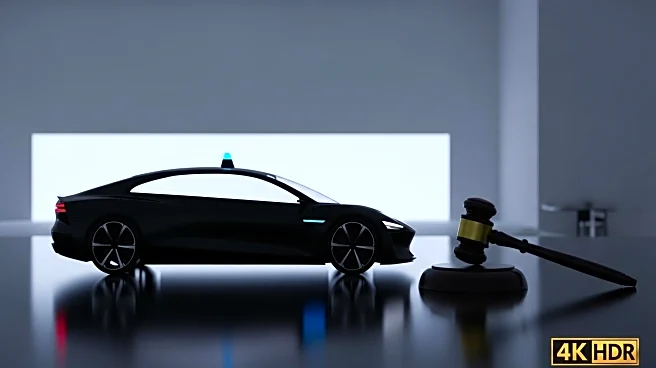What's Happening?
Tesla has filed a motion to overturn a $243 million verdict against the company in a lawsuit concerning its Autopilot system. The case involves a 2019 crash in Florida where George McGee, driving a Tesla Model S with Autopilot engaged, collided with a parked SUV, resulting in the death of Naibel Benavides Leon and severe injuries to her boyfriend, Dillon Angulo. Tesla's legal team argues that the verdict contradicts Florida tort law and common sense, attributing the majority of the blame to McGee's actions, including his admitted distraction while reaching for his phone. The jury had apportioned two-thirds of the blame to McGee and one-third to Tesla. Tesla's lawyers contend that the verdict could deter innovation and lead manufacturers to avoid safety enhancements due to fear of large penalties.
Why It's Important?
The outcome of this case holds significant implications for the autonomous vehicle industry and product liability law. If Tesla's motion is successful, it could set a precedent that influences how liability is determined in cases involving driver assistance technologies. The case also highlights the ongoing debate over the safety and reliability of autonomous systems, which are critical to the future of transportation. A decision against Tesla could reinforce the need for stringent safety standards and accountability in the development and deployment of such technologies, potentially affecting consumer trust and regulatory approaches.
What's Next?
The court's decision on Tesla's motion will be closely watched by stakeholders in the automotive and technology sectors. If the verdict is upheld, Tesla may face increased scrutiny and pressure to enhance the safety features of its Autopilot system. Conversely, if the motion is granted, it could embolden other manufacturers to push forward with autonomous technologies without fear of similar legal repercussions. The case may also prompt discussions among lawmakers and regulators about the balance between innovation and safety in the autonomous vehicle industry.
Beyond the Headlines
The case raises ethical questions about the responsibility of manufacturers in ensuring the safety of their products and the extent to which drivers should be held accountable for misuse. It also underscores the challenges in communicating the capabilities and limitations of autonomous systems to consumers, which is crucial for preventing accidents and fostering public confidence in these technologies.








